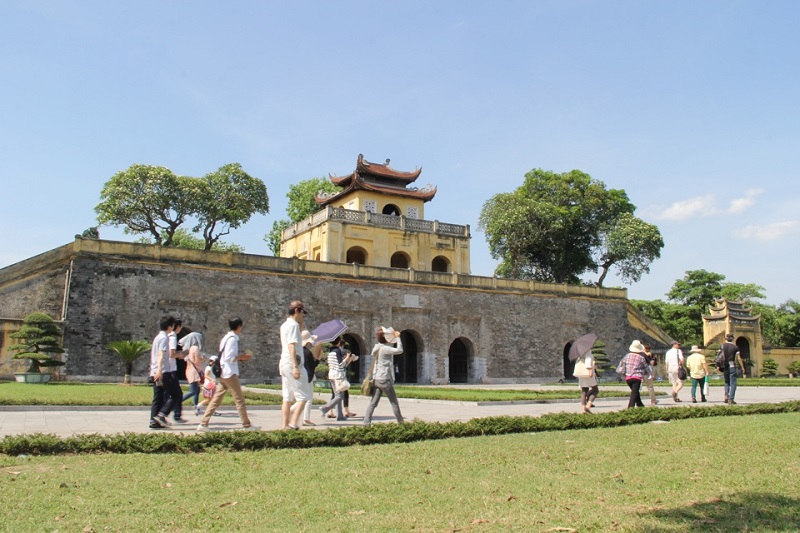E-visa expiry should be in 60-90 days: Lawmakers
Foreign visitors now enjoy only 30 days of stay in Vietnam, while the durations in other Southeast Asian countries are 45-90 days.
National legislators have proposed that e-visa validity for foreign visitors should be extended to 60-90 days, higher than the average of 45-90 days in other regional nations.
| Visitors at the Thang Long Imperial Citadel in Hanoi. Photo: Cong Hung/The Hanoi Times |
A single foreign visitor can now live in Vietnam for a maximum of 30 days. The amended law on immigration, migration, residency, and layover for foreigners may enable the individual to stay in the country for 45 days.
The projected cap is moderate compared to other nations in Southeast Asia, such as Thailand, Indonesia, Singapore, the Philippines, and Myanmar, deputy Ha Phuoc Thang from Ho Chi Minh City said at a National Assembly's group discussion session on May 27.
"If the validity is capped at 60-90 days, that will undoubtedly boost tourist, economic, and investment activities," said Thang.
Deputy Van Thi Bach Tuyet from Ho Chi Minh City suggested that the e-visa validity should be described in days instead of months to ease travel for foreigners, as the number of days varies from one month to another.
She also recommended the Government report the list of countries with e-visa issuance to the National Assembly for public disclosure.
Permanent member of the economic commission Nguyen Manh Hung criticized the late action on the visa policy, citing data proving that Vietnam’s tourism lags behind other nations in the region.
In 2019, Vietnam welcomed 19 million foreign visitors, some six million lower than Thailand's. After the Covid-19 pandemic, Vietnam in 2022 only received some 60% of its targeted five million international comers, while the numbers in Thailand and Malaysia were 11 million and nine million guests, respectively.
Since 2022, Thailand has extended e-visa validity for foreign visitors to help boost domestic socio-economic growth while Vietnam has done nothing, Hung said. In the first quarter of 2023, Vietnam welcomed only 3.7 million international guests, while the full-year target is eight million.
“Ease on visa policy is key to drive our tourism because our country is as attractive as our neighbors,” he said, blaming restricted visa policy and low quality of domestic services as the main problems in the tourism sector.
Minister of Public Security To Lam said existing regulations and laws on immigration, migration, and residency for foreigners had not matched the practical situations.
He said that the e-visa rule would ease travel and entrance for international visitors, improve domestic socio-economic growth, make tourism one of the economic spearheads, and facilitate foreign investors to study the Vietnamese markets.
The national defense and security commission also agreed that e-visa validity should be raised to full three months or 90 days instead of the current 30 days, and foreigners will enjoy multiple entries instead of a single entry.
The commission chief Le Tan Toi said the amendment would favor foreign visitors and investors, thus assisting the nation's economic activities.
In terms of implementation, legislators suggested that the Ministry of Public Security and the Vietnam Border Guard take charge of granting and managing e-visa issuance.
The public security ministry is now responsible for taking action to implement international agreements and repatriate and receive expelled Vietnamese citizens. Thus, it would be ideal that the ministry is empowered to handle visa administration, Deputy Le Nhat Thanh from Hanoi said.
Deputy Tran Viet Anh from Hanoi said that many tourists have problems entering Vietnam as they have to comply with the laws on immigration and border security.
It would be appropriate for the border guard force to get involved in law enforcement because they are the key force that deals with immigration and violations at the border areas, Deputy Thang of Ho Chi Minh City said.










